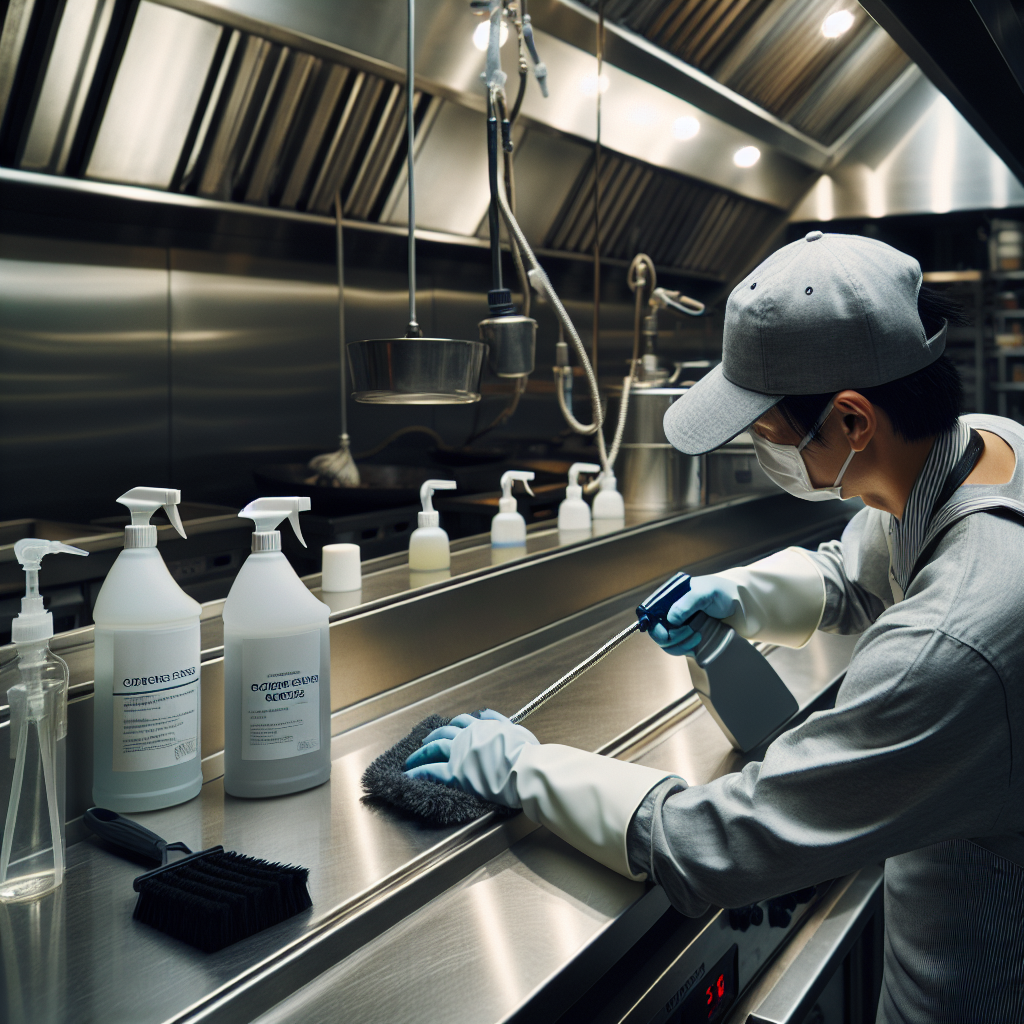Essential Hood Cleaning Guide: Tools, Chemicals, and Procedures Explained
Understanding the Importance of Hood Cleaning
In the bustling world of commercial kitchens, cleanliness is not just a luxury, but a necessity. Hood cleaning is an essential part of maintaining a safe and efficient kitchen environment. Whether you operate a small eatery in Toms River, NJ, or a lavish restaurant in New Jersey, keeping your kitchen hood clean is crucial to the well-being of your establishment.
Why Is Hood Cleaning Essential?
Hood cleaning, especially in the restaurant industry, serves multiple purposes. Not only does it ensure a hygienic cooking environment, but it also plays a significant role in fire prevention. Grease and grime can accumulate in the exhaust hoods, posing a significant fire risk. Furthermore, regular hood cleaning helps improve air quality and ensures that all necessary health standards are met.
Equipment Needed for Restaurant Hood Cleaning
To achieve an effective cleaning, having the right equipment is paramount. Below is a list of essential tools needed for commercial kitchen hood cleaning:
- Scrapers and brushes: These help remove the heavy buildup of grease and grime.
- Cleaning agents: Specialized chemicals designed to cut through grease.
- Pressure washers: For thorough cleaning of all surfaces.
- Protective gear: Gloves, goggles, and masks to ensure safety.
- Plastic sheeting: To cover kitchen equipment and floors.
Chemicals Used in Exhaust Hood Cleaning
The right chemicals can make or break your cleaning efforts. When considering exhaust hood cleaning, it’s essential to understand which products are most effective. Look for chemicals that are non-toxic, biodegradable, and specifically formulated to break down grease and grime. Here are some commonly used chemicals:
- Degreasers: Strong yet safe solutions for breaking down grease.
- Foaming agents: Help the cleaning agents adhere to vertical surfaces.
- Neutral pH cleaners: Safe for use on metal surfaces without causing corrosion.
Step-by-Step Procedures for Effective Hood Cleaning
A successful hood cleaning process involves several well-defined steps. Here’s a comprehensive guide to ensure your commercial kitchen hood is spotless:
Step 1: Preparation
Before you begin the cleaning process, make sure to:
- Turn off all gas and electrical appliances.
- Lay plastic sheeting over kitchen surfaces to protect them.
- Wear protective gear to safeguard against harsh chemicals.
Step 2: Initial Scraping
Use scrapers and brushes to remove the bulk of the grease buildup from the hood and vents. This initial step helps in making the subsequent cleaning steps more effective.
Step 3: Application of Cleaning Agents
Apply the degreasers and foaming agents to the hood and vents. Make sure to cover all surfaces thoroughly. Allow the chemicals to sit for the recommended amount of time to break down the grease.
Step 4: Scrubbing and Washing
After the chemicals have done their job, use a combination of brushes and scrapers to remove the dissolved grease. Follow this up with a thorough rinse using a pressure washer to wash away any remaining residues.
Step 5: Wipe Down and Inspect
After washing, use clean cloths to wipe down all surfaces. Ensure that there is no remaining grease or chemical residue. Conduct a final inspection tomake sure everything is clean and that no part of the hood system has been overlooked.
When to Call Professional Hood Cleaners
While regular day-to-day cleaning is something that can be handled by kitchen staff, a periodic deep clean by professionals is highly recommended. They have the specialized equipment and expertise to thoroughly clean and maintain the exhaust hood system. Moreover, professional cleaners can perform inspections and identify potential issues before they become major problems.
Finding the Right Hood Cleaning Service in New Jersey
If you’re based in New Jersey, finding a reliable hood cleaning service is vital to maintaining your kitchen’s hygiene and safety standards. Look for companies that are certified and have good reviews, particularly those with experience in cleaning commercial kitchen exhaust systems. For those located in Toms River, NJ, and the surrounding areas, consider using Jersey Hood Cleaning services for their expert and thorough approach.
Final Thoughts
In the restaurant business, the importance of maintaining a clean and safe kitchen cannot be overstated. Understanding the basics of hood cleaning, familiarizing yourself with the necessary equipment, and following the correct procedures are essential steps. Regular cleaning reduces fire hazards, ensures a healthy environment, and keeps your kitchen running smoothly. So, whether it’s daily maintenance or a professional deep clean, make hood cleaning a priority in your restaurant management routine. For those in New Jersey and looking for expert assistance, don’t hesitate to reach out to Jersey Hood Cleaning.







